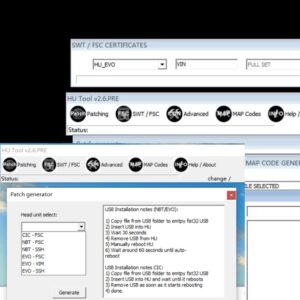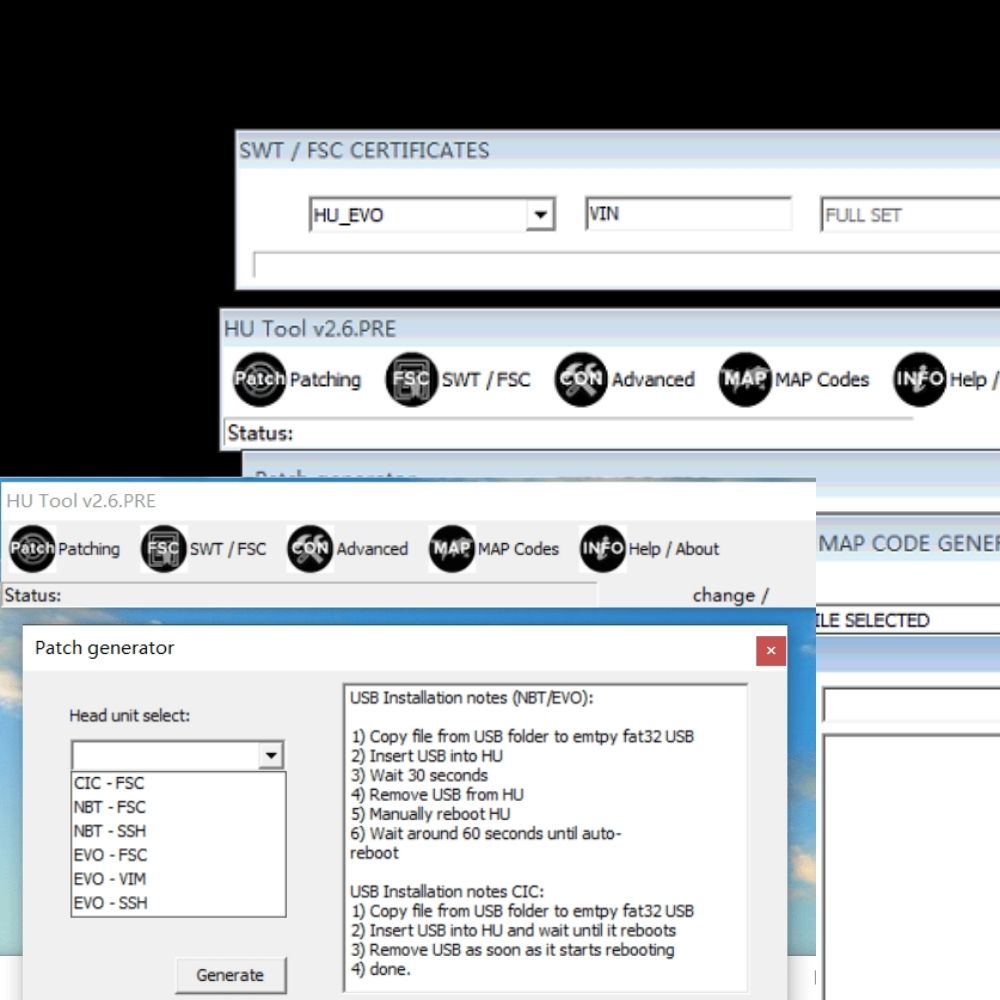
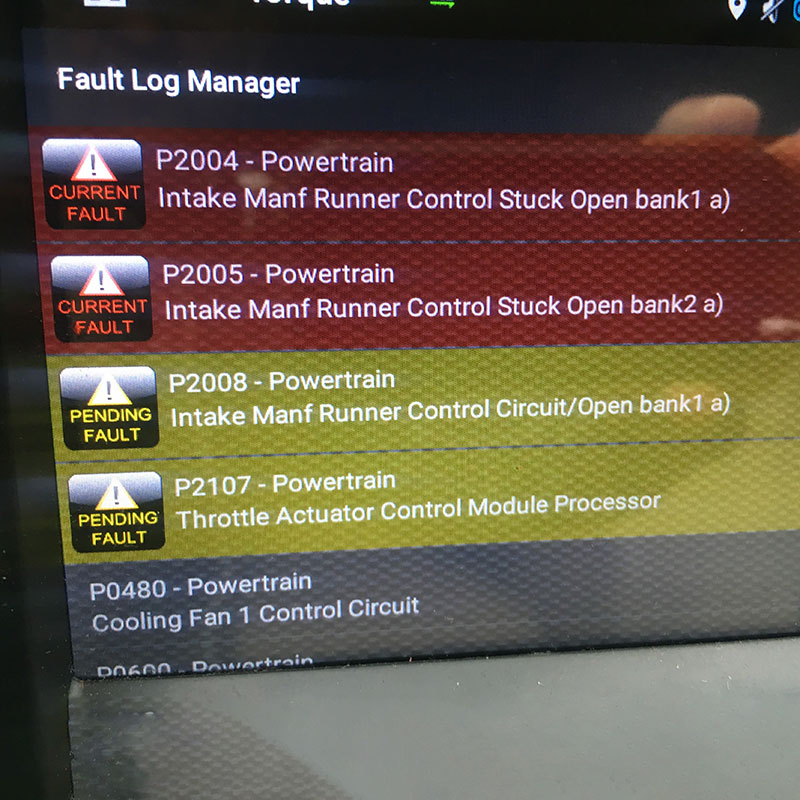
What Are the Symptoms of a Bad Powertrain Control Module?
The Powertrain Control Module (PCM) is the brain behind your vehicle’s engine and transmission. When it starts to fail, the symptoms can be frustrating, intermittent, or catastrophic. If you’re experiencing strange engine behavior, shifting problems, or even a no-start condition, a faulty PCM could be the culprit. In this article, AutoExplain will show you what are the symptoms of a bad powertrain control module
Table of Contents
Toggle1. Understanding the Powertrain Control Module (PCM)
The PCM (Powertrain Control Module) is a central computer that governs how your engine and transmission operate. It receives input from dozens of sensors and sends commands to actuators to control fuel delivery, ignition timing, idle speed, emissions systems, and automatic gear shifting.
Depending on your vehicle:
-
The PCM may be a combined unit that manages both the engine (ECU/ECM) and transmission (TCM).
-
Or, the PCM may work alongside separate ECU and TCM modules.
It acts as the decision-making unit, using real-time data to ensure fuel efficiency, performance, and emissions compliance.
2. What Are the Symptoms of a Bad Powertrain Control Module?
When a PCM fails, it can mimic a range of unrelated issues. Below are the most common and telling symptoms:
2.1. Check Engine Light (CEL) or Warning Lights
-
The most obvious indicator of PCM issues.
-
CEL may stay illuminated or flash intermittently.
-
May be accompanied by other warning lights like:
-
Transmission warning
-
Stability control or ABS (if integrated through CAN)
-
Note: The CEL doesn’t always mean PCM failure—it could be a downstream effect. Still, persistent or unresponsive CELs deserve a deeper look.
2.2. Engine Performance Problems
If your engine runs poorly or inconsistently, the PCM could be misprocessing sensor data or failing to deliver correct outputs.
Common symptoms:
-
Engine misfires
-
Rough idle or stalling
-
Hesitation under acceleration
-
Surging or fluctuating RPM
-
Hard starting or no-start conditions
In extreme cases, the engine may crank but never start, because the PCM fails to trigger fuel injectors or ignition coils.
2.3. Transmission Shifting Issues
If your PCM controls the transmission, expect strange gear behavior when it fails.
Signs include:
-
Harsh shifting or delayed engagement
-
Getting stuck in one gear (limp mode)
-
Skipping gears or erratic shifting
-
No shift at all
You may feel the transmission “slam” into gear or hold high RPMs without shifting.
2.4. Unusual Fuel Consumption
Since the PCM calculates injector timing and fuel trims, a faulty one can drastically affect fuel economy.
Look for:
-
Sudden decrease in MPG
-
Black smoke from the exhaust (rich condition)
-
Lean codes (if PCM mismanages MAF or O2 sensor data)
2.5. Dash Display Glitches or Non-Functioning Gauges
If the PCM is part of the CAN (Controller Area Network) system, a failure can cause:
-
Inoperative tachometer, fuel gauge, or speedometer
-
Random dash lights blinking
-
Loss of communication with scan tools or other modules
2.6. No Communication With PCM (Scan Tool Issues)
A professional scan tool may fail to connect with the PCM:
-
“No ECU detected” or “Cannot communicate with module”
-
May also throw U-codes (communication-related diagnostic trouble codes)
2.7. Illogical or Multiple Unrelated Fault Codes
Sometimes a failing PCM will throw multiple DTCs across different systems that don’t make sense together.
Examples:
-
P0300 (random misfire)
-
P0700 (transmission fault)
-
U0100 (lost comm. with PCM)
-
P0601-P0606 (internal control module faults)
These mixed signals are a red flag.
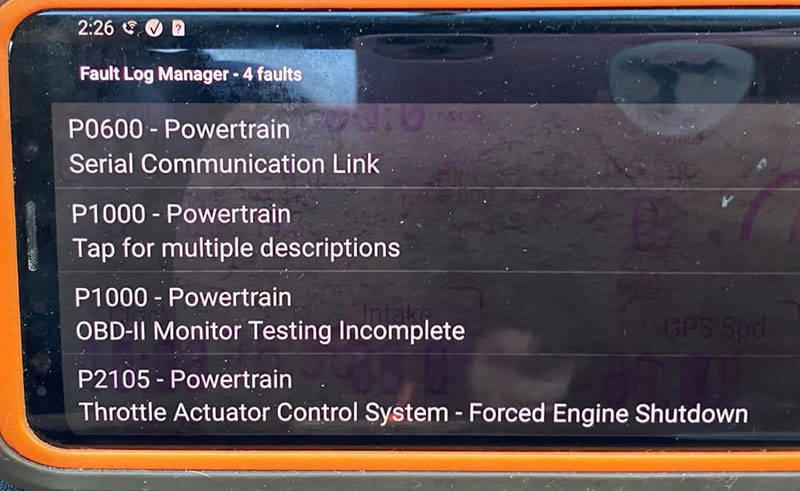
3. Bad Powertrain Control Module Fault Code You Should Know
Here’s a breakdown of key PCM-related fault codes, including some that are manufacturer-specific:
| Generic OBD-II Code | Meaning |
|---|---|
| P0600 | Serial communication link malfunction |
| P0601 | Internal PCM memory checksum error |
| P0603 | PCM long-term memory reset |
| P0604 | Internal RAM error |
| P0605 | Internal ROM error |
| P0606 | PCM processor fault |
| U0100 | Lost communication with ECM/PCM |
| P0700 | Transmission control system malfunction |
🔧 BMW-Specific Codes
-
2A98 / 2A99 – Crankshaft-camshaft correlation (may be PCM timing logic fault)
-
30BA / 30FF – Boost pressure regulation, could be linked to PCM output issues
=> You may also like:
🔧 Ford PCM-Related Codes
-
P1260 – Theft detected (PCM immobilizer input)
-
P2100-P2110 – Throttle actuator control, PCM may be limiting RPM
🔧 Chrysler/Dodge/Jeep Codes
-
U0401 – Invalid data received from PCM
-
P0882 – TCM power input low (may indicate PCM relay failure)
4. What Causes PCM Failure?
A PCM is solid-state and built to last, but failure still happens—especially under the following conditions:
4.1. Voltage Overload
-
Jump-starting your car backward
-
Failing alternator sending spikes
-
Improperly installed aftermarket electronics
4.2. Water Intrusion
-
PCM location near wheel wells or cowl (common in Dodge, VW, etc.)
-
Cracked housing, flooding, or pressure washing under hood
4.3. Thermal Stress
-
Excessive underhood heat cycles can damage solder joints over time.
4.4. Corroded or Broken Connectors
-
Loose, bent, or oxidized pins
-
Damaged harnesses creating intermittent faults
4.5. Failed Ground or Power Supply
-
Poor grounding = logic errors or no function
-
A weak or damaged PCM relay can mimic failure symptoms
5. How to Diagnose a Bad PCM (Step-by-Step)
Before you condemn the Powertrain Control Module (PCM) and spend hundreds of dollars on a replacement, it’s critical to perform a thorough and methodical diagnosis. PCM-related issues can mimic sensor faults, wiring problems, or even battery and ground issues. Below is a step-by-step diagnostic guide used by professional technicians to rule out all other possibilities before replacing a PCM.
✅ Step 1: Check for Power and Ground at the PCM Connector
The PCM needs stable battery power and a solid ground connection to function properly. Intermittent power, voltage drops, or high ground resistance can cause erratic behavior or make it seem like the PCM has failed.
How to perform the check:
-
Disconnect the PCM harness connector.
-
Identify the power feed pins and ground pins using a wiring diagram specific to your vehicle.
-
With the ignition in the ON position, use a digital multimeter (DMM) to:
-
Measure voltage at the power pin — it should read 12V–14V.
-
Measure resistance between the ground pin and chassis ground — it should read less than 0.2 ohms.
-
Tip: Also perform a voltage drop test while cranking the engine. Weak grounds often reveal themselves under load.
✅ Step 2: Inspect Connectors, Terminals & Wiring Integrity
Even a good PCM can’t function correctly if the signal path is compromised. Corrosion, water ingress, or broken wires are common issues, especially in high-humidity or road-salt environments.
Inspection checklist:
-
Visually inspect all PCM connectors for:
-
Green corrosion
-
Bent or recessed pins
-
Melted, discolored, or loose plastic housings
-
-
Gently tug on each wire to check for internal wire breaks or damaged insulation.
-
Use a terminal tension tester if available, or insert a male test pin to ensure a snug fit.
-
Check for water intrusion or oil contamination, especially if the PCM is mounted near the firewall, fender well, or under the cowl.
Pro tip: Always check connector seals and wire harness strain relief — pin tension or physical stress can cause intermittent connections.
✅ Step 3: Scan for Diagnostic Trouble Codes & Freeze Frame Data
Use a professional-grade scan tool that can read manufacturer-specific codes and access enhanced PCM data streams.
Steps:
-
Retrieve all DTCs from the PCM and related modules (TCM, ABS, BCM, etc.).
-
Analyze freeze frame data to see under what conditions the codes were set.
-
Look for patterns such as:
-
Multiple unrelated codes (e.g., ignition, transmission, and throttle together)
-
Loss of communication codes (e.g., U0100 – Lost Communication with ECM/PCM)
-
PCM internal fault codes (e.g., P0601 to P0606)
-
Key indicator: A bad PCM may throw fault codes that don’t clear or return immediately after being erased, even without a fault condition.
✅ Step 4: Perform Output Tests and Live Data Monitoring
The PCM controls many critical components: ignition coils, fuel injectors, electronic throttle bodies, VVT solenoids, EGR valves, etc. If the PCM cannot command these components or misinterprets sensor inputs, it may be defective.
Output function tests:
-
Use a scan tool to command on/off specific actuators (injectors, fans, etc.) via bi-directional control.
-
Monitor live data parameters:
-
Throttle position vs. accelerator pedal input
-
MAF sensor vs. engine load
-
O2 sensor activity vs. fuel trims
-
-
Use an oscilloscope to measure:
-
Injector pulse width
-
Ignition coil signal
-
CAN bus communication consistency
-
Tip: If the PCM outputs are inconsistent or non-existent despite correct inputs, that strongly points to internal failure.
✅ Step 5: Flash or Reprogram the PCM (If Supported)
Some PCM issues are not hardware-related but instead due to software bugs, corrupted firmware, or calibration mismatches. In these cases, a software update or reflash can resolve the issue without replacement.
Steps to perform:
-
Check the OEM technical service bulletins (TSBs) for your vehicle — many PCM-related TSBs recommend reprogramming as a fix.
-
Use a factory scan tool or J2534 pass-thru device with licensed OEM software.
-
Follow the reflash or update procedure exactly — many require battery stabilizers to prevent voltage drops during the update.
Warning: Do not interrupt a reflash session. If done improperly, it may brick the PCM.
Signs a reflash may fix the issue:
-
Known TSB issued for similar symptoms
-
No hardware failure found, but erratic behavior persists
-
PCM responds to scan tool, but logic is clearly flawed
6. PCM Repair vs. Replacement: What Are Your Options?
Once you’ve confirmed that your Powertrain Control Module (PCM) is faulty — whether due to an internal failure, software corruption, or physical damage — it’s time to choose how to proceed. There’s no single “best” route, as the right solution depends on your vehicle’s age, warranty status, budget, and available resources. Below is a detailed breakdown of the four most common options for replacing or repairing a bad PCM:
6.1. Factory Replacement PCM (OEM New Unit)
Best suited for:
-
Newer vehicles (especially under factory warranty)
-
Vehicles requiring the latest software and 100% OEM compatibility
-
Dealership-level repairs
Overview:
This is the most reliable but also the most expensive route. An original equipment manufacturer (OEM) PCM comes brand new from the dealer or automaker and includes full factory support and quality assurance.
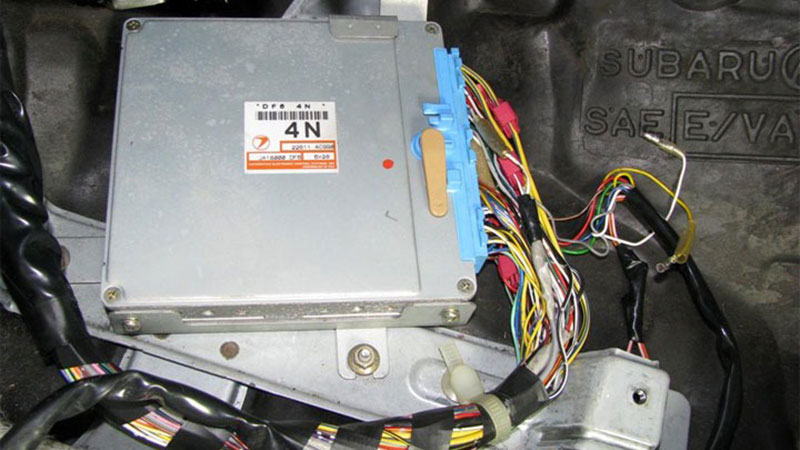
Key Considerations:
-
Programming required: A new PCM must be programmed with the correct Vehicle Identification Number (VIN), immobilizer data, and potentially drive cycle adaptations.
-
Dealer tools often required: Many newer vehicles (e.g., Mercedes, BMW, Ford, GM, etc.) require OEM diagnostic software and sometimes cloud-based security credentials to perform the installation and pairing process.
-
Warranty coverage: If the vehicle is under warranty or if there’s a TSB or recall on the PCM, replacement may be covered.
Pros:
-
Guaranteed compatibility
-
Fully updated hardware and software
-
Covered under manufacturer warranty
Cons:
-
Expensive (often $500–$1,500+)
-
Requires dealer-level tools and expertise
-
Labor-intensive setup
6.2. Rebuilt or Remanufactured PCM
Best suited for:
-
Out-of-warranty vehicles
-
Customers seeking cost-effective solutions with decent reliability
-
Shops equipped to send in modules for repair
Overview:
Remanufactured PCMs are original units that have been diagnosed, repaired, and tested by specialized electronics repair facilities. They are cleaned, refurbished, and typically reprogrammed to original specs.
Key Considerations:
-
Software may be outdated: Some reman PCMs are shipped with basic firmware and may require a software update after installation.
-
Core exchange required: Many sellers require you to return your original PCM as a “core.”
-
Turnaround time: Some companies offer exchange services, while others need your old unit sent in first for evaluation and repair.
Pros:
-
More affordable than new OEM
-
Tested and often warrantied
-
Available for many older or discontinued models
Cons:
-
Software not always up to date
-
Not always plug-and-play — may need reprogramming
-
Quality varies by provider
6.3. Used PCM (Salvage Unit)
Best suited for:
-
Older vehicles no longer supported by OEM
-
Emergency repairs on a tight budget
-
DIYers with advanced tooling access
Overview:
A used PCM pulled from a salvage or donor vehicle can be a quick and inexpensive fix, but it comes with significant risks and caveats. The replacement PCM must match your vehicle’s hardware AND software versions exactly.
Key Considerations:
-
VIN and immobilizer issues: A used PCM will still be programmed with the donor vehicle’s VIN and security data. In most modern cars, this creates a mismatch with your vehicle’s immobilizer or BCM, preventing the engine from starting.
-
Cloning or programming required: You’ll either need to clone your old PCM’s data into the used one or reprogram it with your vehicle’s correct VIN and keys.
-
High failure rate if mismatched: Even small differences in part numbers or firmware can cause drivability issues, failed emissions tests, or permanent check engine lights.
Pros:
-
Low upfront cost
-
Widely available at junkyards or online marketplaces
-
Fast solution if matched correctly
Cons:
-
Requires exact match (hardware/software/VIN)
-
Risk of pre-existing issues in used unit
-
May not be compatible without reprogramming
6.4. PCM Cloning (Data Transfer from Old to New Unit)
Best suited for:
-
Retaining vehicle-specific coding and calibration
-
Swapping to used or reman PCMs with different VINs
-
Avoiding immobilizer and anti-theft system conflicts
Overview:
PCM cloning involves using specialized hardware and software to extract the EEPROM or flash memory from your original (faulty) PCM and write it to a replacement unit. This technique preserves all original data, including:
-
VIN
-
Immobilizer codes
-
ECU coding
-
Learned adaptations
-
Emissions calibration
Key Considerations:
-
Requires specialized equipment: This is typically performed by electronics repair shops, auto locksmiths, or high-level tuners.
-
Works best with partial failures: If your original PCM can still communicate, data extraction is more reliable. If the original unit is completely dead, full cloning may not be possible.
Pros:
-
Preserves all factory settings
-
Avoids immobilizer/VIN issues
-
Compatible with used or generic PCMs
Cons:
-
Not always available locally
-
Requires technician experience with module reprogramming
-
Won’t work if original PCM is physically or electrically unreadable
7. How to Prevent PCM Problems
While some PCM failures are unavoidable, there are steps you can take to minimize the risk:
- Regular Maintenance: Keeping your vehicle’s electrical system in good working order can help prevent voltage spikes and other electrical problems that can damage the PCM.
- Protecting from the Elements: Parking your car in a garage or under cover can help protect the PCM from extreme temperatures and moisture.
Conclusion
Identifying the symptoms of a bad powertrain control module is the first step towards resolving potentially serious car trouble. From a simple check engine light to significant performance issues, a faulty PCM can manifest in numerous ways. By understanding these symptoms and seeking professional diagnosis and repair, you can keep your vehicle running smoothly and safely. Don’t ignore the warning signs – address PCM problems promptly to avoid further complications.
FAQ
1. How much does it cost to replace a PCM?
PCM replacement costs vary depending on the vehicle’s make and model, but it’s typically a significant expense.
2. Can I drive with a bad PCM?
Driving with a faulty PCM is not recommended, as it can lead to further damage and potentially dangerous driving conditions.
3. How long does a PCM last?
The lifespan of a PCM varies, but it’s typically designed to last the life of the vehicle.
4. Can a bad battery cause PCM problems?
Yes, a failing battery can cause voltage fluctuations that can damage the PCM.
5. How do I know if my check engine light is due to a bad PCM?
Only a professional diagnosis can determine if a check engine light is caused by a faulty PCM.
6. Can I replace a PCM myself?
Replacing a PCM is a complex process that requires specialized tools and knowledge and is best left to professionals.
7. What happens if I ignore a bad PCM?
Ignoring a bad PCM can lead to further damage to your vehicle and potentially create unsafe driving conditions.
Need support? Contact us via WhatsApp: +1(936)2896695, email [email protected], website AutoExplain or visit us at 4590 Angus Road, New York, United States. Our customer service team is available 24/7.


BMW FSC Codes Explained: Full FSC Code List for F-Series

What is a Stage 3 Remap?

The Best Car Tuning Software in 2026: A Comprehensive Guide for Professionals




